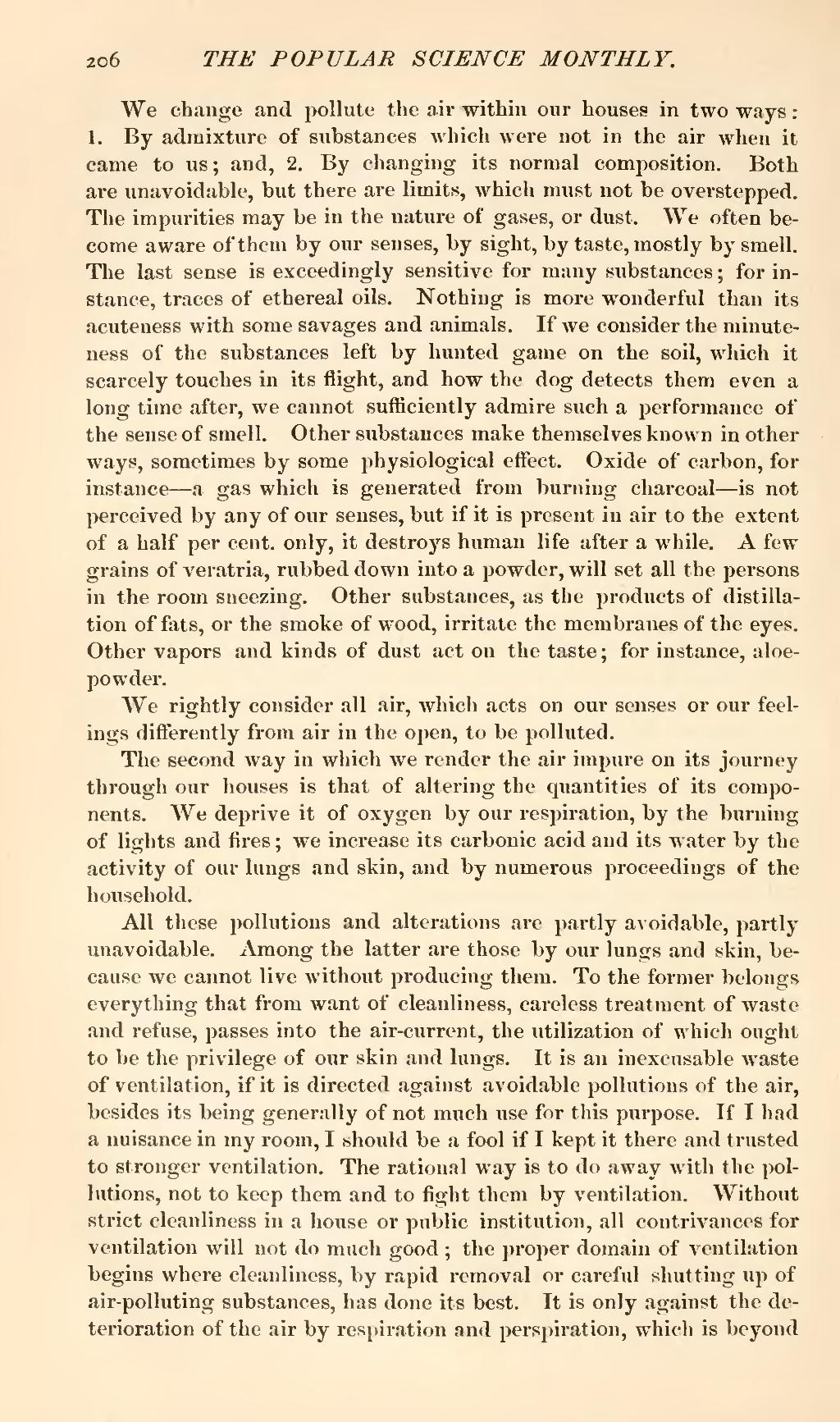We change and pollute the air within our houses in two ways: 1. By admixture of substances which were not in the air when it came to us; and, 2. By changing its normal composition. Both are unavoidable, but there are limits, which must not be overstepped. The impurities may be in the nature of gases, or dust. We often become aware of them by our senses, by sight, by taste, mostly by smell. The last sense is exceedingly sensitive for many substances; for instance, traces of ethereal oils. Nothing is more wonderful than its acuteness with some savages and animals. If we consider the minuteness of the substances left by hunted game on the soil, which it scarcely touches in its flight, and how the dog detects them even a long time after, we cannot sufficiently admire such a performance of the sense of smell. Other substances make themselves known in other ways, sometimes by some physiological effect. Oxide of carbon, for instance—a gas which is generated from burning charcoal—is not perceived by any of our senses, but if it is present in air to the extent of a half per cent, only, it destroys human life after a while. A few grains of veratria, rubbed down into a powder, will set all the persons in the room sneezing. Other substances, as the products of distillation of fats, or the smoke of wood, irritate the membranes of the eyes. Other vapors and kinds of dust act on the taste; for instance, aloe-powder.
We rightly consider all air, which acts on our senses or our feelings differently from air in the open, to be polluted.
The second way in which we render the air impure on its journey through our houses is that of altering the quantities of its components. We deprive it of oxygen by our respiration, by the burning of lights and fires; we increase its carbonic acid and its water by the activity of our lungs and skin, and by numerous proceedings of the household.
All these pollutions and alterations are partly avoidable, partly unavoidable. Among the latter are those by our lungs and skin, because we cannot live without producing them. To the former belongs everything that from want of cleanliness, careless treatment of waste and refuse, passes into the air-current, the utilization of which ought to be the privilege of our skin and lungs. It is an inexcusable waste of ventilation, if it is directed against avoidable pollutions of the air, besides its being generally of not much use for this purpose. If I had a nuisance in my room, I should be a fool if I kept it there and trusted to stronger ventilation. The rational way is to do away with the pollutions, not to keep them and to fight them by ventilation. Without strict cleanliness in a house or public institution, all contrivances for ventilation will not do much good; the proper domain of ventilation begins where cleanliness, by rapid removal or careful shutting up of air-polluting substances, has done its best. It is only against the deterioration of the air by respiration and perspiration, which is beyond

